General election 2017: Muslim women centre stage in Bradford West
- Published
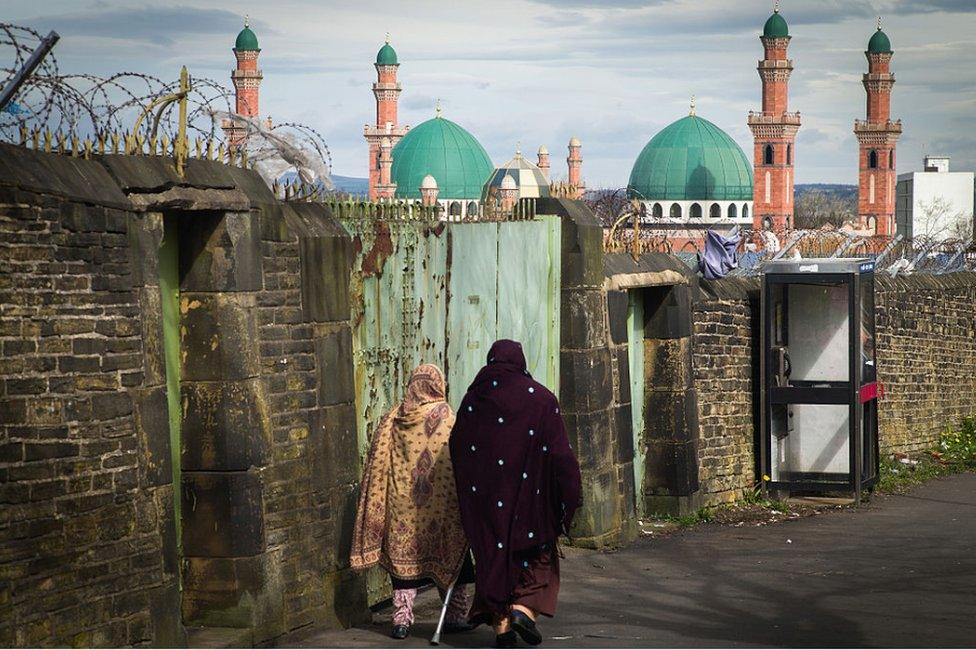
Bradford's Muslim community - and its politics - have traditionally been male-dominated. Yet patriarchal clan networks are swiftly becoming a thing of the past, to the extent that in this year's general election, two Muslim women are contesting one of the city's seats.
Labour's Naz Shah, who won Bradford West from George Galloway in 2015, is defending her 11,420 majority against five other candidates, including former Respect Party leader Salma Yaqoob.
To understand the significance of this, it is important to appreciate how the political engagement of Muslim women in Bradford West has evolved over the generations.
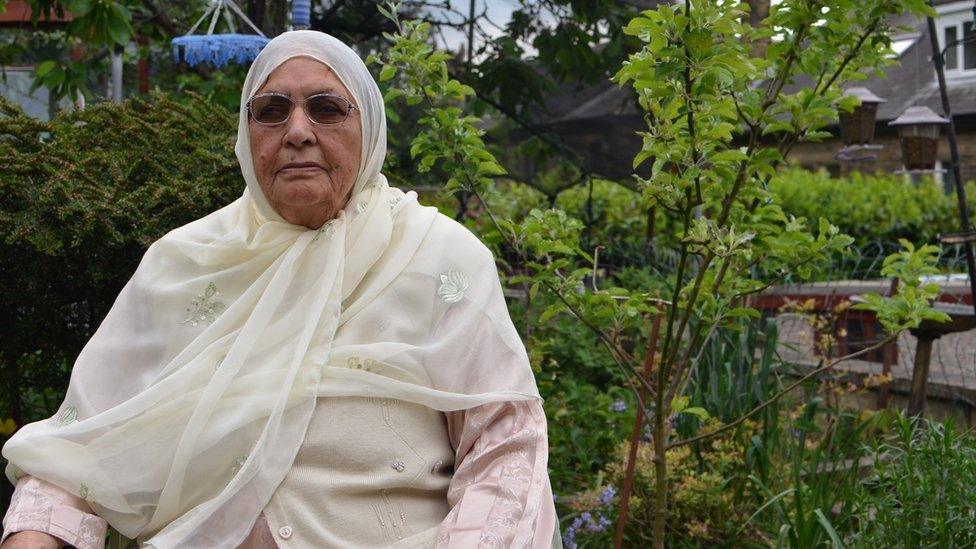
Hajra Bibi: 'Come election day, our husbands... would tell us which name to put a cross next to."
Hajra Bibi arrived in Yorkshire in 1969 from a village in the Punjab region of Pakistan. Now aged 80, with six children, 20 grandchildren and 13 great grandchildren, she has seen how politics in Bradford has changed.
In 1960s Pakistan she was a landowner and her husband was in the army. As a result, they exerted significant influence in their village and those who worked for them, the labourers and maids, would look to them for advice on which direction to vote.
Thus they yielded power and the politicians recognised this. When Hajra's husband left for England, she became the head of the household and the parliamentary candidates would visit her specifically to win her allegiance.
These women, whose men were overseas, had to get involved in politics to save their families' social position.
Moving to Bradford meant she had to learn afresh where she stood in the social hierarchy.
Who are the Bradford West 2017 candidates?
"When we first came, I didn't know much about [UK politics]," she said.
"It wasn't because I didn't have an interest but mainly because no politician ever came and spoke to me like they do now. We got leaflets thrown through the letterbox and that was it.
"Come election day, our husbands or the boys would tell us which name to put a cross next to.
"But when Asians started standing for office, I noticed they would come to our house, they would talk about what they wanted to do and I shared my views with them."
Hajra's experience is shared by many of her generation who left their families and homes to secure a better future for their children.
The men came first in the 1950s, working in the industrial towns like Bradford. Their objective was to earn money, send it back home to improve living conditions and then return. But they didn't return.
The longer they stayed, the more they realised future generations would benefit from the opportunities the UK presented, so they invited their relatives to join them and by the 1980s families from the subcontinent had begun to settle.
Nadira Mirza, a 61-year-old education consultant, remembers this era vividly.
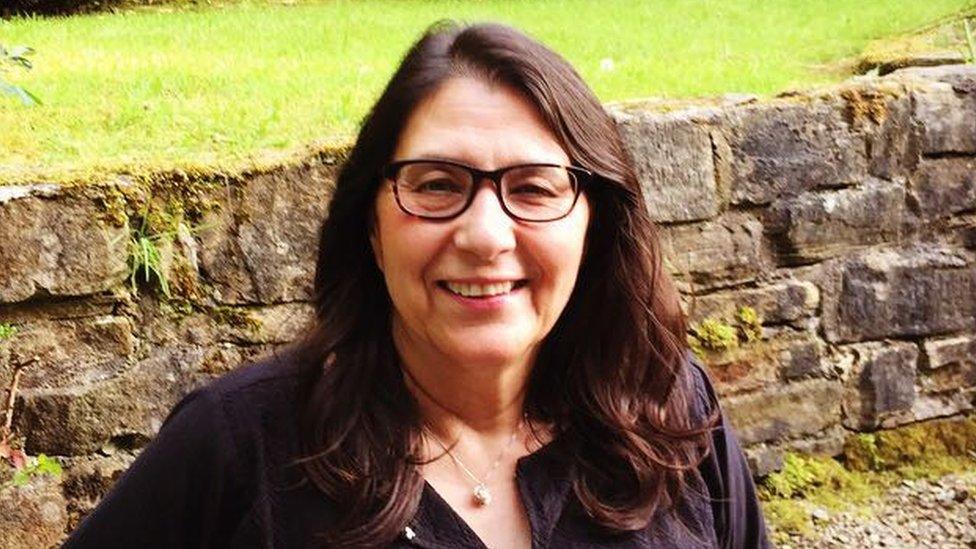
Nadira Mirza: 'Some of the early politicians sold themselves out. They went into politics for the wrong reasons.'
'We were not involved directly in party politics, but very much on the front lines of community politics, we were developing infrastructure that would make it easier for the families who were migrating here and settling.
"There was no thought of standing in party politics- the politicians were part of the establishment.
"As activists, we didn't feel that real change would occur through that process. Some of the early politicians sold themselves out. They went into politics for the wrong reasons, they just wanted to consolidate their own positions of power rather then making a difference particularly for Asian women and girls. That we had to do for ourselves."
The presence of the biradari (clan network) system did not help. The emerging South Asian community in Bradford, of which a large proportion was Muslim, needed help in ensuring their needs were met, so they chose from among them the adequately educated to represent them.
Thus came the emergence of "community leaders". The politicians at the time realised these men could deliver a bloc vote akin to that provided by the unions so they used them to their advantage.
The bloc vote was secured by the head of each clan telling his family which way to vote.
It was a win-win situation - but not for the women.
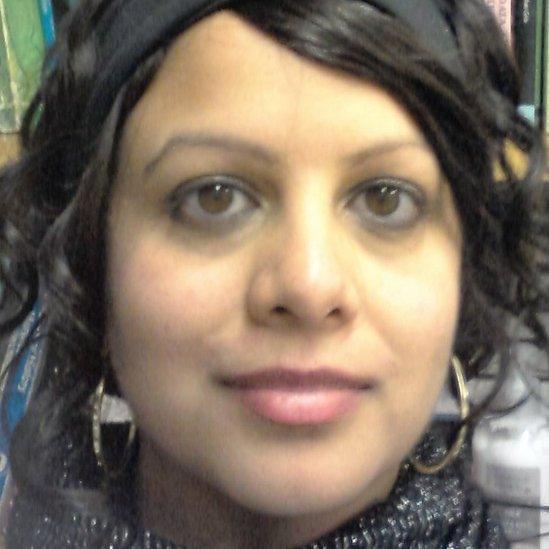
Dr Akhtar is a lecturer in political science at Aston University
"The biradari system in the political sphere has traditionally been hierarchical and patriarchal, so the leaders are almost always exclusively older men," said Dr Parveen Akhtar, an academic specialising in political participation of UK Muslims.
"They set out the needs of the community according to their own priorities. This has meant that young people and women have been marginalised, both in terms of political issues and in terms of pursuing political office."
But this is changing.
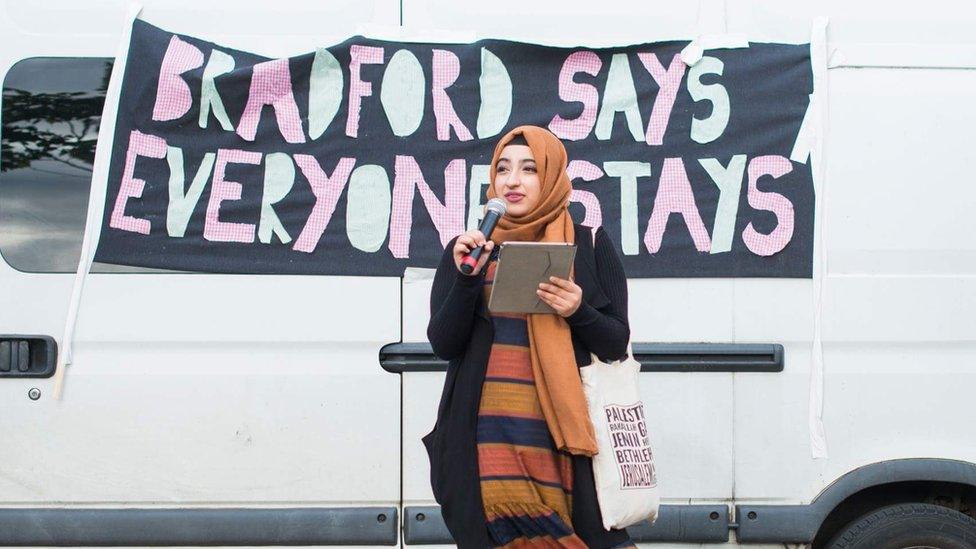
Samayya Afsal served for two years as the women's and campaigns officer of the NUS at the University of Bradford
"I became politically active out of necessity," says Samayya Afsal , 25, who is from Bradford and a former member of the National Union of Students's national executive council.
"I saw the demonisation of Muslims, an education system that was unfair and injustices across society.
"The more people from minority communities enter positions of power, the easier it becomes for the generations who follow. They become indirect mentors and a support network is created.
"I think Muslim women are now more involved in party politics because women are tired of being represented by people who only care about their votes and not their issues.
"The days are long gone where women are expected to take the lead from appointed male leaders within our community. Access to education has hugely improved literacy and confidence to engage with issues."
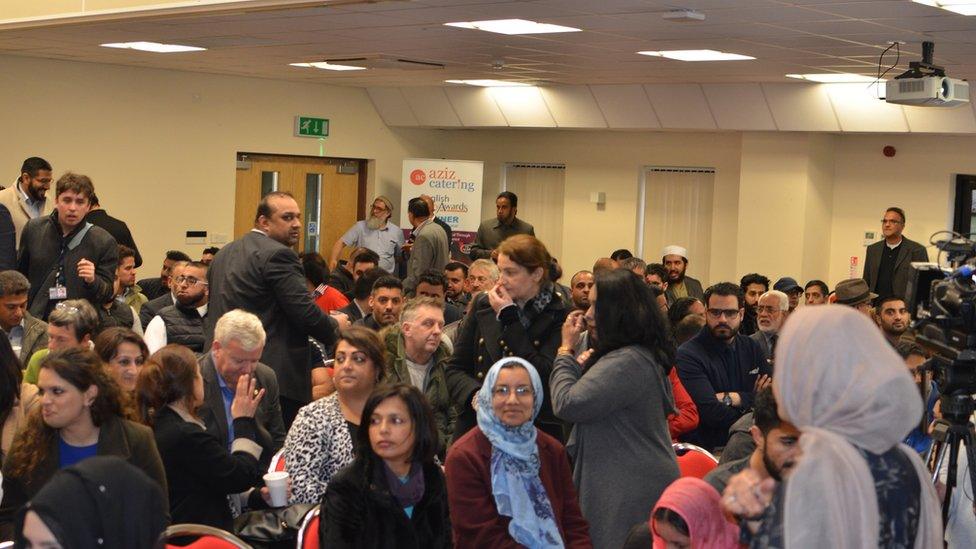
Packed Bradford West hustings
Aisha Ali Khan, a teacher and human rights campaigner, said it made her happy to see two prominent Muslim women standing in the general election.
"It shows we have come a long way from the years of when you could count the number of Muslim women in British politics on one hand. I hope it sends a powerful message that politics can be a place for women and encourage more women to participate."
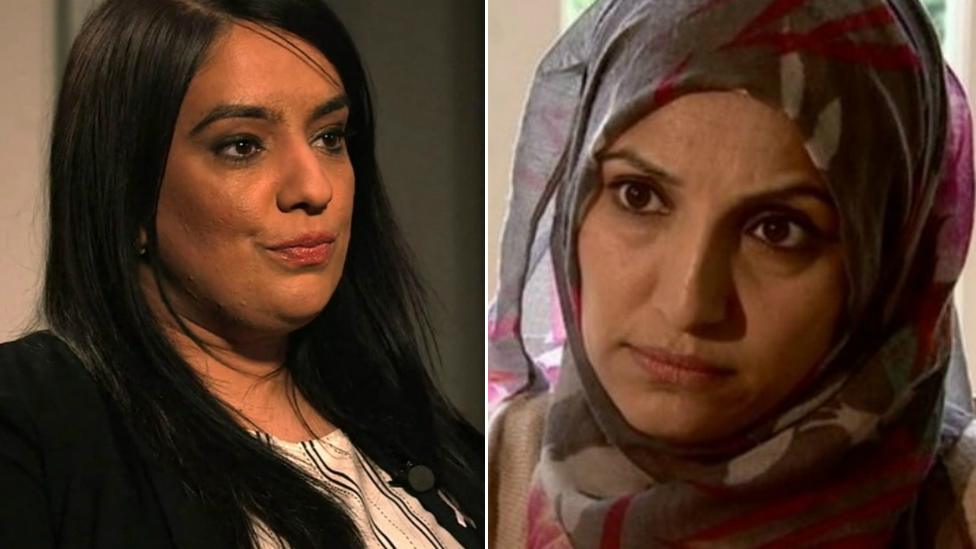
Naz Shah and Salma Yaqoob are among the candidates in Bradford West
There is no doubt that Bradford West is a politically-charged and engaged constituency; hustings here are fully booked days in advance. It is a constituency with a rich history of migration and diversity, of struggle and success. Within it are issues of deprivation, poverty and lack of education. But there is potential, there is passion and there is a persistent call for change.
In the heart of the city centre, a former money exchange shop has been transformed into a welcoming space where people can debate issues that affect them. Although Speaker's Corner is led by women it is open to everyone.
Saliah Rubani is one of the organisers and she says the group was created after the hugely successful Women of the World (WOW) festival which took place last year.
"Originally we held mentoring sessions but it grew into a place where the girls could have safe discussions about issues ranging from mental health to activism," she said.
"Bradford is on the cusp of change, and women are leading that change."

Speaker's Corner events offer a place for young women to debate issues that affect them